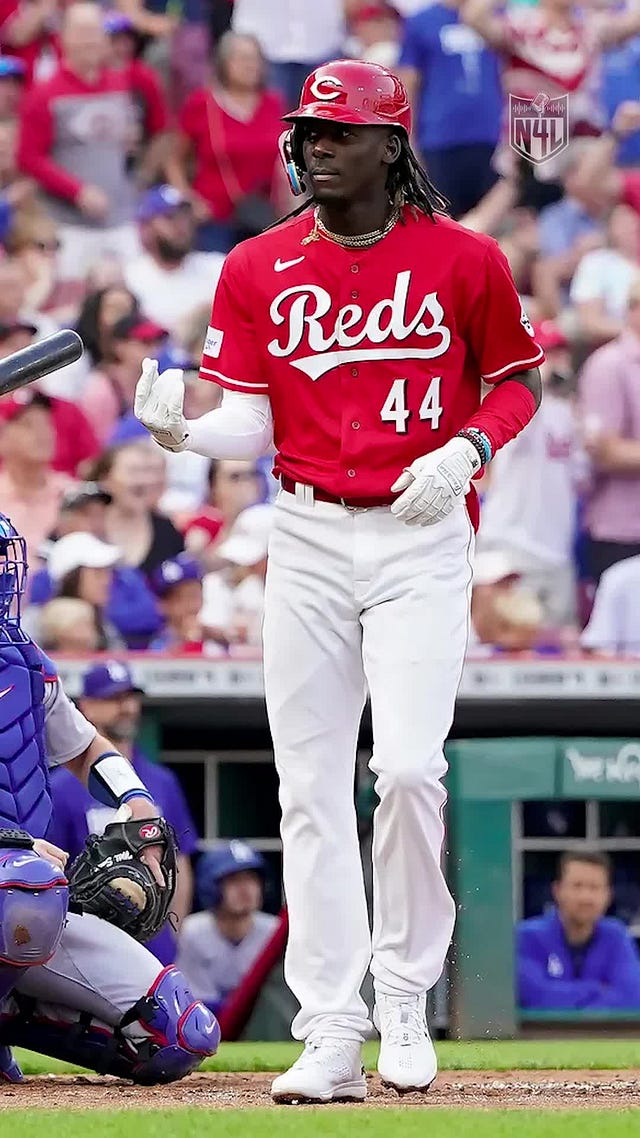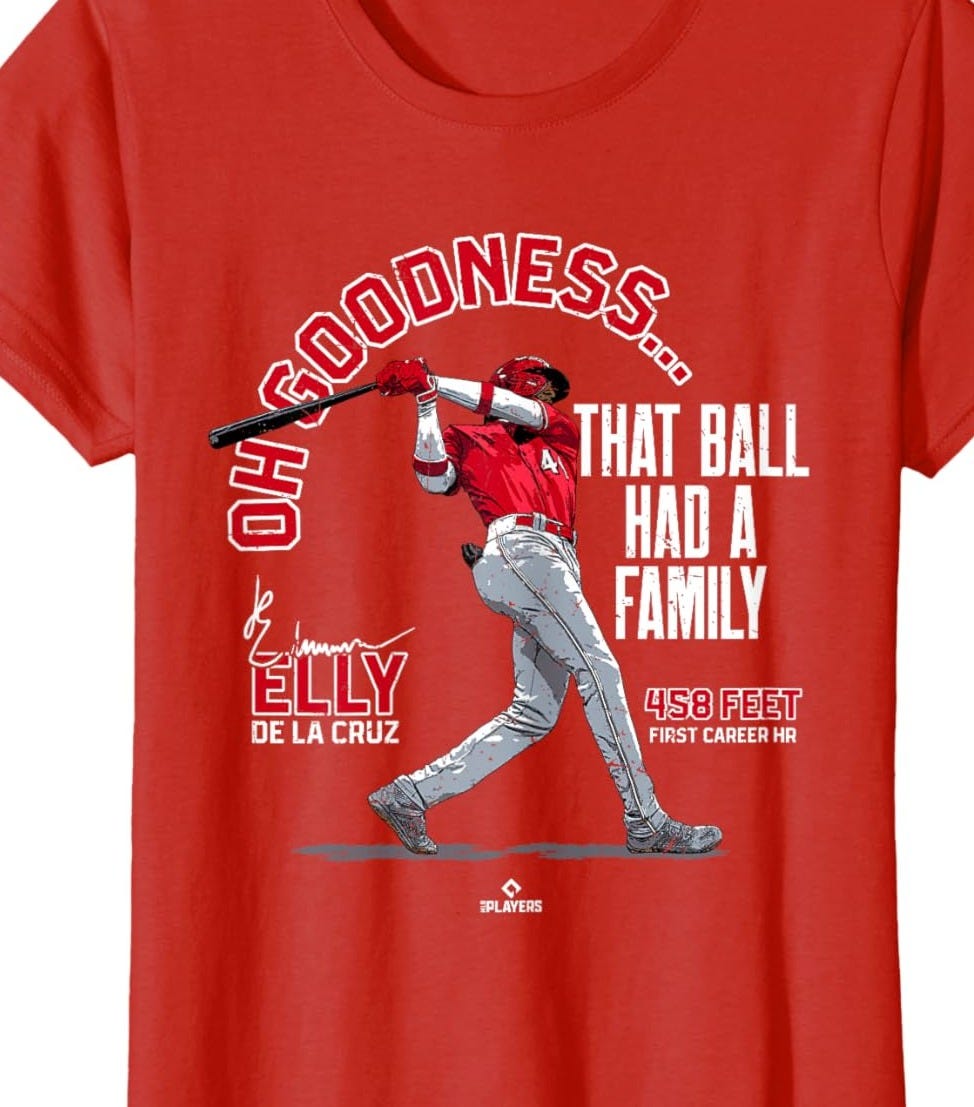Juuust a bit outside. How I learned to stop worrying and listen to the game
Baseball broadcasters are different. Go with it.
This time on Baseball for Beginners, I’ll be talking about the special kind of magic that can only be conjured by baseball announcers, and providing a few of my favourite examples, featuring trademark home run calls, mea culpas interrupted, character assassinations and, of course, sick movie references.
But let’s begin with an empty chair.
Bob Uecker, or ‘Ueck’ died on January 16 this year, otherwise he would have sat in this spot, in the broadcast booth at the spring training facility of the Milwaukee Brewers, as that team prepared for the Major League season. It’s safe to say this because he had announced Brewers games for 54 seasons prior to his death.
That would be plenty. But he was also a Major League baseball player (if an unremarkable one), a regular and hilarious guest on The Johnny Carson Show, the announcer for Hulk Hogan v Andre the Giant at Wrestle Mania III and one of the reasons I am writing this blog. I don’t mean this entry. I mean the whole thing.
I probably rented the VHS tape of the movie Major League five times from Grampian Domestics, the domestic appliance and repair store in my hometown of Stonehaven, which made the innovative and profitable decision to replace vacuum cleaners with video cassettes along one wall of the shop in the mid-1980s.
I didn’t know a thing about baseball, but I picked up as much as I needed to enjoy the comical adventures of Tom Berenger, Charlie Sheen and the gang. But the special sauce of that film, I always thought, was provided by the guy playing the announcer, Harry Doyle. He had some of the biggest laughs of the movie and was responsible for explaining what was happening (especially to a baseball novice like me). He was both hilarious and absolutely believable as a commentator. And that’s because unlike Wesley Snipes or LA Law’s Corbin Bernsen (to give him his full name), Ueck was the real thing.
All of which is an excuse to show you this.
What I loved about Ueck in Major League was his deep emotional investment in the team, the Cleveland Indians, and his partisanship.
The vast majority of baseball announcers pick a side. They are the announcer for their team, and for a broadcast that is produced to go only to fans in their city. They cover that team for the vast majority of the gargantuan, six-month, 162-game regular season. They get to know the players and the staff and these relationships come across whenever you listen to a particular team’s broadcast. There’s often a warmth and a familiarity with one side that draws you in to the story of that game, and its place in the bigger story of that team’s year.
That vibe is enhanced by the pace of baseball, a game with spikes of action and drama across three hours of play that are otherwise tuned in to a relatively low frequency. Between the spikes, the announcement team (typically a two-person crew), who must spend more time with each other than they do their own families during the baseball season, fill the air with meandering conversations that provide the baseball beginner with valuable pockets of baseball history, or local lore, or character sketches, or restaurant reviews, or personal confession. If you follow one team, the hours you log with one announcement team who communicate on this intimate level becomes a big part of your connection with that team. But the space they have to fill also has its pitfalls.
In August 2020, Thom Brennaman was commentating for Fox Sports Ohio on the Cincinnati Reds as they played against the Royals in Kansas City. During the first game of a double-header, a hot mic picked up Brennaman describing the city of San Francisco as ‘one of the fag capitals of the world’. The Reds (the clubs themselves own these local broadcasts and hire the production teams) pulled Brennaman off air during the second game, but gave him the opportunity to apologise on air before he left. So far, so good. But what happens when, during your solemn mea culpa, as you see your entire career and professional reputation flash before your eyes, the very thing that you are trained to react to happens on the field. The answer, reader, is this:
Let’s stick with the Reds, and a player who I think might be my favourite across baseball as we prepare for the 2025 season.
Elly De La Cruz was rushed to the Major Leagues aged just 21 and with a staggering talent that includes blistering speed, murderous power and an arm like a cannon. He was playing in his second game, in June 2023, when he hit the ball 458-feet, prompting John Sadak, the Reds’ announcer to exclaim: “Oh my goodness! That ball had a family!” Here’s the call and Sadak talking about where it came from.
And here’s the t-shirt they made about it:
Sadak’s call was an emotional reaction, a one-off. But many announcers have trademark home run calls, a signature flourish they put on the big moment as the ball carries over the fence.
‘That baby is gone!’
‘You can put it on the board!’
‘Get up! Get up! Get out of here! Gone!’ (That one was from Ueck).
These are all calls celebrating something beautiful, the home run. But I also promised character assassination, so here it is. Bob Costas leaving Cubs pitcher Pedro Strop with no name at all.
But to bring it back to the movies, what truly inspired this post was a memory of half-watching a game a few years ago, and having my attention caught by the sound made when a batter really gets a hold of one. As the ball sailed toward the stands, the announcer said:
“You will report to the stables at 1900 hours tonight and every night AND WITHOUT THAT PLEDGE PIN!”
This had absolutely nothing to do with what happened on the field, or with the sport of baseball. It was, as I hope you know, a relatively obscure quote from the classic, if largely cancelled, comedy, Animal House.
To this day, I can’t find any evidence of this home run call that had nothing to do with home runs (if you can, that’s why they invented comment sections). But I loved the idea that at least one announcer was using the event of a home run to go wild with quotes from his favourite movies. In attempting to find the Pledge Pin Home Run, I discovered a conversation about home run calls in which one contributor claimed an announcer greeted one such blast with:
‘Orange Whip? Orange Whip? Three Orange Whips!’
Which is of course from….
Imagine watching Mo Salah score for Liverpool and instead of describing the move that led to the goal, Peter Drury just starts riffing on The French Connection, or The 40-Year-Old Virgin, or Three Colours: Red. I don’t know what that guy’s into.
However, sometimes sick movie references fit exactly with the drama unfolding on the field of play. There are few more inspirational sights in baseball than an outfielder taking flight, defying gravity to hang at the top of the wall, and then bending their glove behind that boundary to steal a home run from a heartbroken batter.
It wasn’t quite what Colonel Nathan R Jessup, as played by Jack Nicholson, had in mind when he made one of the greatest speeches in movie history, but hey - if the outfielder’s glove fits. At least once a season, you can catch one of these plays being called with the immortal line.
You want me on that wall, you need me on that wall
American Baseball announcers (and those from Toronto) add so much to my enjoyment of the game, but I’ll leave you with an example of baseball commentary that got a lot of heat last year across the sport. And it came from the good old BBC.
The London Series between the Philadelphia Phillies and the New York Mets produced one of the more nuts conclusions to a game you can imagine. With the bases loaded in the ninth inning and one out, Nick Castellanos of the Phillies was facing the Mets pitcher Drew Smith. Castellanos’ bat shattered on contact with Smith’s pitch, Mets catcher Luis Torrens moved a few feet forward to grab it, and then hopped back to touch home plate, thus recording one out (of the onrushing Garret Stubbs). As Stubbs piled into Torrens, the catcher unloaded a laser-like throw to first baseman Pete Alonso, before Castellanos could get to first, therefore recording a second out on the play and ending the game.
Confused? You should be. I’ve just re-read that and I don’t have the first clue what happened, and I watched the damn thing. Fortunately, the BBC’s Darren Fletcher called it perfectly - you get the action, the drama, the spectacle and the emotion. No 1980s comedy references, though.
Hey, thanks for reading this. Please stick with baseball for the 2025 season.







